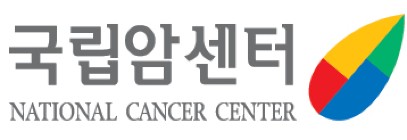An established biomarker for breast cancer is the overexpression of the protein Her2, which also indicates how patients will respond to specific treatments. Yet only half of Her2-positive patients respond to treatment, leaving the other half scrambling for alternative therapies.
Meeting the need for life-saving data
There is an urgent need for clinical data that will help researchers better understand the underlying mechanisms of cancer and improve patient outcomes, says the president of National Cancer Center (NCC) Korea, Eun Sook Lee. Knowing the common traits of those for whom treatments are not effective will lead to more tailored therapies.
When Lee took the lead role at NCC in 2017, she immediately established the organization’s Precision Oncology Initiative, which aligns new and existing cancer data infrastructure into a national platform for cancer data. The endeavour has been a resounding success in its first couple of years, currently holding more than 11 million records from more than 515,000 patients, integrating about 98% of the nation’s cancer patient data. NCC is supported by 45 South Korean research institutes, hospitals and regional cancer centres, which all send clinical data to a central data warehouse. The organization makes its data available nationally and internationally, and is a prominent member of international consortia and transnational data-sharing endeavours.

Key members of the Precision Oncology Initiative at work (from left to right: Jong Bae Park, Dongwan Hong, Hyo Soung Cha, Kui Son Choi, Jae Wook Lee).
Fighting cancer on all fronts
NCC has four main branches, which together adopt a holistic approach towards finding cures for cancer. Alongside its hospital and research institute, its control institute acts as a think tank, guiding government policies to promote cancer control and research success. NCC’s fourth arm is a graduate school that trains students from low-income countries. The school provides young scientists with full scholarships and the opportunity to learn from world-leading cancer researchers.
After success in standardizing and committing the masses of South Korean cancer patient data to its database, Lee and her colleagues are focusing on utilizing the latest advances in next-generation sequencing to augment their dataset. Two years after the government approved funds to administer next-generation sequencing panels to cancer patients and biological samples stored in the organization’s biobank, NCC now has detailed protein and genetic (proteogenomic) profiles for around 3,000 patients and is adding approximately 1,000 profiles each year. Through their alliances with hospitals nationwide, Lee and her team are working to incorporate detailed datasets on specific malignancies, such as pediatric, gastric, prostate, lung, breast, and rare cancers. Following a 2017 meeting between the health ministries of South Korea, Japan and the United States, NCC delegated its bioinformatics analysis team to focus on developing a transnational data-sharing system for their proteogenomic data in collaboration with the US National Cancer Institute.
The data from this collaboration will be shared through the International Cancer Genome Consortium’s ARGO project, for which NCC is a regional data-processing centre. Through a collaboration with the Korean Institute of Science and Technology Information, another data-processing centre is being set up as a service to the research community.
In another initiative, NCC will host The Force Awakens, the 13th International Symposium on Cancer Proteomics, in June 2019. This event is organized by the Clinical Proteomic Tumor Analysis Consortium (CPTAC) and will bring together proteomics experts from around the world, offering a platform for networking and the dissemination of cutting-edge knowledge. CPTAC is a key collaborator on the NCC’s proteogenomics database, ARCHON (Advanced poRtal of Clinical History and multi-Omics iNformation).

Eun Sook Lee, President of the National Cancer Center Korea.
Push for act amendment to allow more data access
One of the biggest challenges to NCC’s operations, according to Lee, is South Korea’s data-protection legislation, considered one of the world’s most restrictive. Driven by respect for individuals’ privacy, it prevents the spread of information that could ultimately save lives.
As part of South Korea’s Ministry of Health and Welfare, NCC submitted a draft for amending the Cancer Control Act. This draft is currently under review by the National Assembly. If successful, the organization will be exempted from the data-protection law and given much more power to leverage patient data to improve cancer research and patient care.
Lee isn’t leaving this to chance, and is pursuing the congress members who will decide whether the law is adopted. “I’ve become a lobbyist,” she exclaims. “I’m explaining why this is so important; why it should be done.”
“Precision oncology is no easy task,” Lee says. “The genetic diversity seen in cancers in the clinic is huge, which means we need to generate data from every patient in order to get at the problem.” Data is a versatile tool and can help to determine the most appropriate treatment, discover new therapeutic targets, and identify predictive biomarkers for prognosis and treatment. A major motivation for NCC’s focus on data, says Lee, is that some cancers are so rare that without data on large cancer populations, vital information could be missed altogether.



